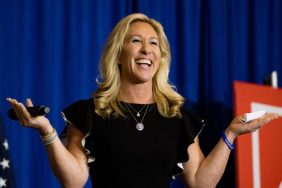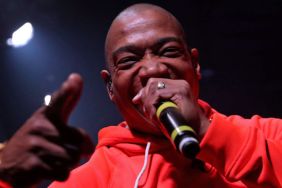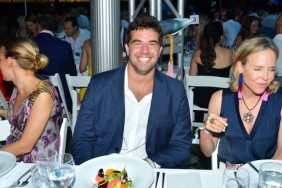
McFarland may be in California, but we’re not talking beaches and palm trees. More like smog and almond groves in one of the poorest towns in the state.
After living in the Golden State for more than seven years, it became evident that many outside of California assume everything in it looks like Malibu. Being from Illinois myself, I remember when I held such innocent ignorance. What can I say? I watched a lot of ‘Saved By the Bell’ and ‘Fresh Prince of Bel-Air.’
However, what many — including my much younger self — don’t realize, is that the central valley of California is not only full of countless farmland but yields more crops than most states combined.
In fact, the tiny town of McFarland (13,745) is in the middle of the almond, walnut and pistachio capital of the world. But that world holds its demons, and if you’ve seen Disney’s latest sports masterpiece, ‘McFarland, USA,’ you get a clear picture of the daily hardships many go through just to survive.
Coach Jim White, played by Kevin Costner, won 9 state championships at McFarland High School after White started a cross country team made up of several children from immigrant field workers. Not only was the dynasty unlikely from the lack of experience the students had playing in organized sports, but they had to train amongst the harshest of conditions: the worst air quality in the country, 100 degree+ temperatures, gangs, low wages, extreme family stress.
It was an honor to speak with Coach Jim White. Being a runner myself and also a reporter who lived and reported in Bakersfield (less than 30 minutes away) and who has also been to McFarland on assignment, I was anxious to hear his thoughts on the movie and what stayed true to life.

The realistic aspect
Josh: I was dying to know while watching, what is it about the movie you liked the most? What was the most realistic aspect?
Jim White: Probably the most realistic things to me were the hardships the families fought through. The family relationships we developed with the kids and their families. I thought Kevin Costner portrayed that real well.
Josh: What was embellished? Maybe something that helped tell the story in the movie but was far fetched?
Jim White: Yeah, there’s always those things. They needed certain things to tie the story together. I actually started coaching in ’80 not ’87.
Josh: Was there one scene in particular that made you grin, telling yourself, “I WISH that would have happened?”
Jim White: I guess there are a lot of things that are Hollywood. But we didn’t look at it like that. We had to view it with a positive attitude … Sure I rode a little lollie bike. But did I in real life? No. But there were certain things that tied the movie together … and we were really excited. We loved it. We didn’t dwell on those things.
I didn’t throw a shoe at the guy… When people ask me about it I say, “well you can tell I didn’t throw it because I wouldn’t have missed him.” [laughs]
Coach did not move from Idaho
Josh: So when did you and your family move to McFarland? Did you move from Idaho?
Jim White: No sir. We came straight from Pepperdine in Los Angeles.
Josh: Pepperdine? Wow. That’s like a country club on the coast. Was it still a big culture shock moving to the central valley?
Jim White: No, no. We were not country club on the coast. We were downtown Watts in 1964. The Watts riots happened in ’65. We moved to McFarland in 1964.
Josh: Oh wow.
Jim White: Pepperdine was in Watts before it moved to Malibu… That’s why I say, we weren’t ‘country club on the coast.’ [laughs]
Not that muscular, not that fat.
Josh: In the movie, Thomas is your best runner and the actor who plays him is very stout. Most long distance runners are very lean. Thomas in real life, was he really that muscular?
Jim White: Yeah, Thomas wasn’t quite that heavy maybe. But yeah he was a stout-bodied runner…
Danny [Diaz] was not fat either.
Josh: What size was Danny Diaz in real life?
Jim White: In ’87 he was probably my lightest runner. [laughs]
Josh: No kidding? [laughs]
Jim White: And Danny lately has been getting a lot of people stopping by the school to see him. He used to tell people “I’m not fat.” And show them the picture of the real Danny Diaz. But he had a girl and a mother drive in from LA or some place. They drove here just to see Danny. She was overweight and had been suicidal. And this inspired her so much that she said she had to come meet him and that she now wanted to do something with her life… And from that point on he said, “I’ll never tell another person that I wasn’t fat.”

Best real-life memories
Josh: Whether it was portrayed in the movie or not, out of all those championships, what’s your most fondest memory?
Jim White: The life-changing experiences that I’ve seen some of these kids go through, and coming back and giving to the community. The Diaz boys and Thomas, they’re all making a difference.
Victor is struggling now, but when he saw this movie it touched him so much that he’s getting himself going in the right direction…
All of those kids went to college, on this team. All of them do not go to college on every team that I’ve had, but this particular year was outstanding in that way… These are life-long memories that I will always keep.
Coach’s favorite movie scene
Josh: What was your favorite scene in the movie? Mine was when, of course, towards the end, when Danny races up that hill and runs a much better split than anyone thought and you guys win the championship. Was that your favorite scene or was there something else that really touched you?
Jim White: Well, favorite scene and something that really touched me would be two different questions. [laughs] But that would be a favorite scene.
I liked it when he [coach White played by Costner] made the decision to stay there. That was pretty emotional too. There’s several things in there that were emotional for me. I know the background with all these things. I’ve seen the movie 18 times and haven’t stopped tearing up [laughs].
Related: The Best Movie Ever: Summer Blockbusters
How did you do it?
Josh: Well I’ve seen it once and I teared up. I’m a runner, training for my second marathon right now. I was never a gifted athlete born with the genes to do it. Just as it seems like a lot of these kids weren’t but had the drive to push themselves to their limits. For those who really haven’t been runners and it may be hard for them to understand, can you describe the challenge it was for you to make them a championship team, especially in a small town where gangs are prevalent along with lack of education.
Jim White: Well first of all, you have to make education important to them. The best way to do it is to work on their attitude. If you can get a positive attitude in kids, they’re willing to work hard. And the attitude will carry them anywhere they want to go… I told them that’s the only thing you can control, is you attitude. You can’t help what’s going to happen tomorrow or today. You can only determine your attitude, especially when you start having problems.
Thomas had problems at home. That was a real thing in there. That wasn’t quite the way I found him… but I did find him on a bridge and he was having problems at home.
Josh: Wow.
Jim White: These are very touching things to me.
There was another one where the teacher reads the poem by Jose?
Josh: Ya.
Jim White: And she reads the poem and she says, “White, you’re making a difference.” Well in reality, Jose became a writer. But in real life too, Jose was abandoned when he was a sixth grader. Abandoned by his parents and left with two brothers in an apartment across town here. And pretty soon the brothers went to Mexico too. He was living in an apartment by himself … he was raised by the custodian, Jim Price, in the movie… He found him from his son. His son was his friend. They were in the school together.
So these are things that are very personal to me. They are very true to life. They didn’t always depict that because the movie got too long. They did film some of it, but they had to cut it out.

The real-life Jim White
On training
Josh: What’s the furthest you’ve ever ran, coach?
Jim White: Uhhh, I’m not a runner. I’ve probably done, one time, probably about 8 miles.
Josh: That’s pretty good. One thing that concerned me while living in the valley was the air pollution. The smog that comes in from the Bay Area. Did that concern you and your kids?
Jim White: Oh yes, yes. We have the worst air quality in the nation. We do.
Josh: And yet you guys won how many championships??
Jim White: Nine.
Josh: [laughs] How do I get fast? What would you tell me if you were my coach?
Jim White: I don’t know what type of base you’re building. But you have to build a base. A little bit of aerobic and anaerobic base. You can’t just put in slow-slow-slow miles all the time because that’s how you’re going to compete — a slow-slow pace. So you have to mix things up… Put more miles in. Change your pace. But you have to put in the aerobic and anaerobic exercise.
McFarland USA releases as a Disney Blu-ray Combo Pack June 2nd.
All photos courtesy of Disney.
Josh Helmuth is the editor of CraveOnline Sports.
Mcfarland USA
-
Mcfarland USA #1

McFARLAND, USA..L to R: Ramiro Rodgriguez (Danny Diaz), Sergio Avelar (Victor Puentes), Kevin Costner (Coach Jim White), Michael Aguero (Damacio Diaz), Carlos Pratts (Thomas Valles), Hector Duran (Johnny Sameniego), Rafael Martinez (David Diaz), and Johnny Ortiz (Jose Cardenas) on set filming McFarland, USA. ..Ph: Ron Phillips..©Disney 2015
-
Mcfarland USA #2

McFARLAND, USA..Carlos Pratts (Thomas Valles) on set of McFarland, USA..Ph: Ron Phillips..©Disney 2015
-
Mcfarland USA #3

McFARLAND, USA..L to R: Kevin Costner (Coach Jim White) and real-life Coach Jim White on set of McFarland, USA. ..Ph: Ron Phillips..©Disney 2015
-
Mcfarland USA #4

McFARLAND, USA..L to R: Johnny Sameniego (Hector Duran), Victor Puentes (Sergio Avelar), Damacio Diaz (Michael Aguero), Danny Diaz (Ramiro Rodriguez), Coach Jim White (Kevin Costner), Jose Cardenas (Johnny Ortiz), Thomas Valles (Carlos Pratts) and David Diaz (Rafael Martinez)..Ph: Ron Phillips..©Disney 2015
-
Mcfarland USA #5

McFARLAND, USA..L to R: Jose Cardenas (Johnny Ortiz), Danny Diaz (Ramiro Rodriguez), Thomas Valles (Carlos Pratts), Victor Puentes (Sergio Avelar), Damacio Diaz (Michael Aguero), Coach Jim White (Kevin Costner), Johnny Sameniego (Hector Duran) and David Diaz (Rafael Martinez)..Ph: Ron Phillips..©Disney 2015
-
Mcfarland USA #6

McFARLAND, USA..L to R: Actor Carlos Pratts (Thomas Valles) and Director Niki Caro on set of McFarland, USA. ..Ph: Ron Phillips..©Disney 2015
-
Mcfarland USA #7

McFARLAND, USA..Thomas Valles (Carlos Pratts)..Ph: Ron Phillips..©Disney 2015
-
Mcfarland USA #8

McFARLAND, USA..L to R: Thomas Valles (Carlos Pratts), Jose Cardenas (Johnny Ortiz), Johnny Sameniego (Hector Duran), Damacio Diaz (Jamie Michael Aguero) and Victor Puentes (Sergio Avelar)...Ph: Ron Phillips..©Disney 2015
-
Mcfarland USA #9

McFARLAND, USA..Coach Jim White..Ph: Film Frame..©Disney 2015






